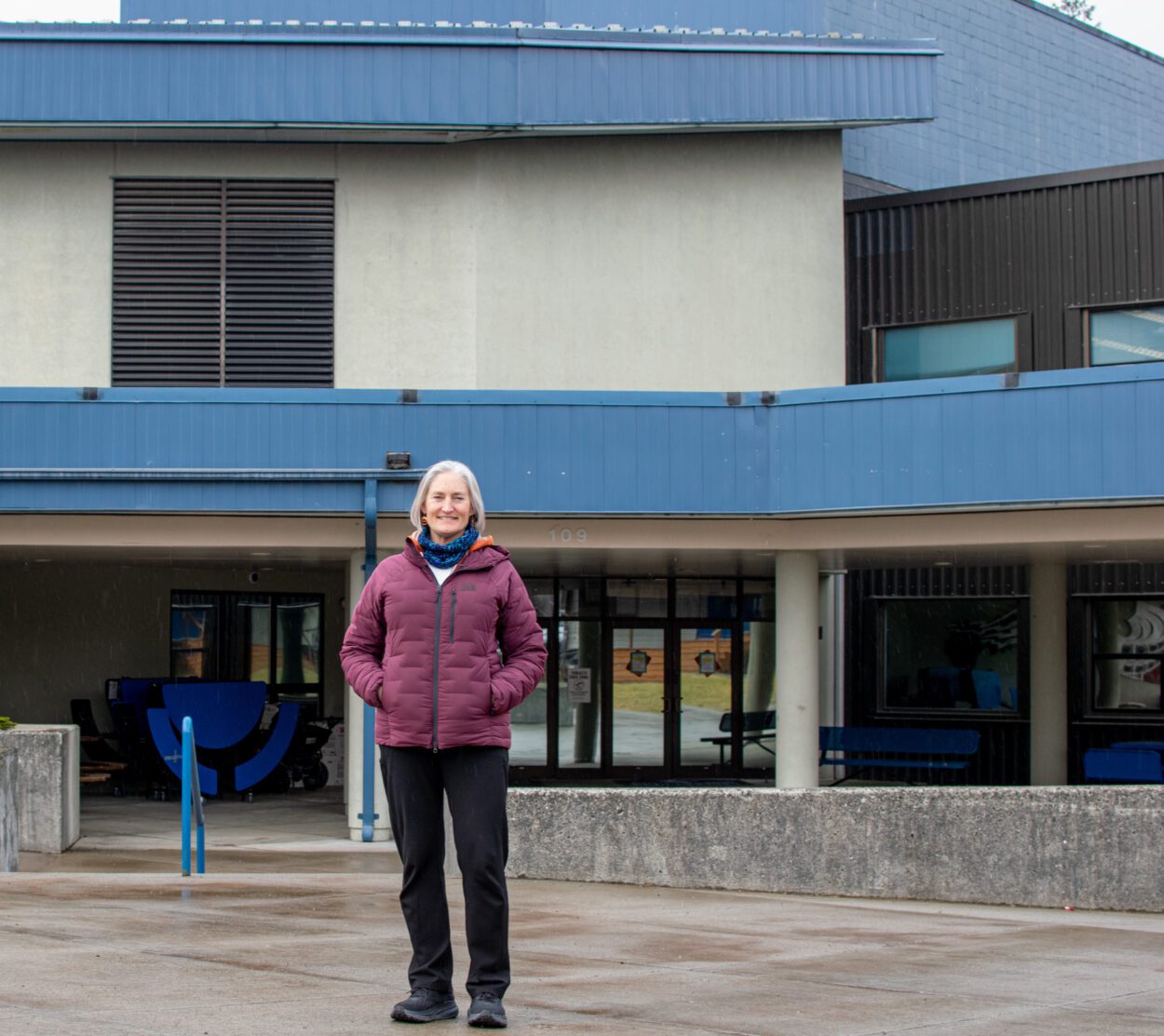
District 2 Rep. Rebecca Himschoot voted for a bipartisan education bill worth almost $250 million on the night of February 22nd. The bill passed in the House almost unanimously. The Senate is expected to pass the measure to Gov. Mike Dunleavy early this week. If signed into law, the bill would bring about the first permanent increase to state education funding in almost a decade.
KFSK’s Shelby Herbert caught up with Rep. Rebecca Himschoot while she was in Petersburg meeting with constituents. She says the education bill feels like a huge win for Alaska schools.
Rep. Rebecca Himschoot: We’re not through, but it was finally making good on the top priority of my caucus since I got elected. So, this is a day of celebration.
Shelby Herbert: Tell me a little bit about this piece of legislation. What does it mean for schools in District 2?
RH: Sure. There’s more we could have done, and there are certain things I wish were different. But that’s usually a sign that you’ve got a win, when everybody’s not quite happy with it. What we did is going to really help in House District 2, we had two small schools faced with closure. So those sites will most likely be able to stay open. We also have students being transported in certain districts in House District 2 and vehicles that are not road-safe.
So, that will hopefully get fixed. We have at least one district with two buildings in it, where they’re keeping a fire watch because the fire panels are broken and they were ready to fix the fire panels with their limited funds and then they had a roof leak. So they decided they had to fix the roof. And they have to actually pay somebody to be in the building watching for fires until they can fix the fire panels. So… we’ve let things go for so long.
The last increase to the base student allocation, the BSA, was in 2017. There was a nominal $30 increase with the READS Act last year. Prior to that, we had received $100 raises for three years in a row. So, really, there hadn’t been much of a meaningful increase to the BSA for so long, that districts have been doing more with less, just trying to get by. And we’ve reached the point this year where it’s very clear that our districts are doing less with less. And we needed to act in the legislature to correct that.
SH: You said earlier you felt like there was more that could have been done. Tell me about what didn’t make it into the final bill.
RH: There was originally a proposal by the governor to pay bonuses to teachers. And a lot of us objected to that language, because we know that the people who make our schools work as a team are not just the teachers. It’s also the folks who are driving the buses and making the meals and keeping the school clean and working in maintenance.
So, we wanted to make sure that anything that was awarded to teachers also had an impact on our support staff. And the other objection we had: a bonus doesn’t work if you go to the bank to be able to get a loan to buy a house. So by adding enough money into the BSA — and I don’t want to use the word “enough,” it’s not the right word — it’s about half of what districts actually need. So, we’re not done. But by putting in as big an increase as we could get, what was politically feasible for this round, [it] should allow districts to make local decisions about how they want to work with their staff.
SH: I’m glad you brought up that last point. As of today, Petersburg’s teachers union is still negotiating a contract with the school district. And Sitka’s teachers union just wrapped up their negotiations. What are you hearing from your constituents about education funding?
RH: I think part of what brought us to this point was the incredible work done by families, by educators, by students themselves, by school board members. Everybody was reaching out prior to last night’s vote, really spelling out what’s at stake, what’s already been lost. In Prince of Wales in Southeast Island School District, they were talking about the different levels of increase and what that would mean in their district: “We don’t have music. We don’t have CTE, career and technical education. We don’t have a counselor. We don’t have these pieces, because they were lost to previous tight budgets.”
So, right now, we’re looking at maintaining the schools where we are trying to give them the levers they need to keep their educators. And then we’ll come back to it and try to try to move people ahead. Right now we’re just putting a finger in the hole in the dike and shoring things up. But we need to do more. So, what I’m hearing from constituents after last night has been — I don’t really have the words for it. There’s been an outpouring of gratitude that I didn’t expect. You take votes like this because you know it’s the right thing to do. And that’s been incredibly rewarding.











